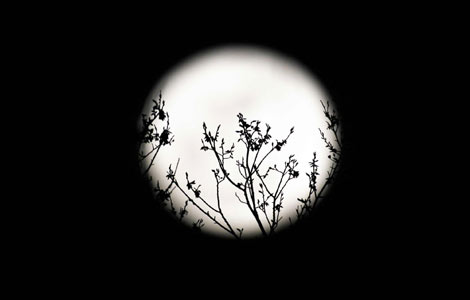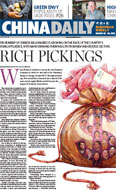Books
China novelists overcoming translation issues
Updated: 2011-03-04 07:59
By Yang Guang (China Daily)
A delegation of seven British literary editors joined their Chinese counterparts at the China-UK Literature in Translation Forum held on Feb 22.
The forum was jointly organized by the Cultural and Education Section of the British Embassy in China and Foreign Exchange and Cooperation Department of the General Administration of Press and Publication, as the curtain raiser for a series of events featuring China as the guest of honor at the 2012 London Book Fair.
Francesca Main, senior commissioning editor for fiction at Simon & Schuster, says it's hard to launch translated fiction in the UK.
She took part in the publication of the English translation of Wolf Totem when working for Penguin. The book, which sold 3 million copies worldwide, sold only 10,000 in the UK, while most paperback bestsellers have sales of about 70,000 in the country.
"I would love to hear about Chinese novels that present the people and culture of contemporary China in a unique and accessible way, perhaps a novel that will enlighten Western readers," Main says.
The qualities she looks for include: indisputable literary merit, a distinctive hook, commercial and prize-winning potential, and a fascinating contemporary or historical portrait of a different culture.
Rebecca Carter, editor at large at Harvill Secker, an imprint of Random House, has already published a few China-themed novels, made possible by the success of the English translation of Chinese-French writer Dai Sijie's Balzac and the Little Chinese Seamstress, in 2001.
Her list also includes Xin Ran's The Good Women of China (2003), Xiaolu Guo's Village of Stone (2004) and A Concise Chinese-English Dictionary for Lovers (2008).
She explains how she found the writers and their books thus: "They lived in Europe and spoke French or English so I could meet them and speak to them; and I could read samples of their work translated into English because they had found good translators."
Two more Chinese writers have recently been added to the list - Chi Zijian (The Right Bank of the Argun) and Yan Geling (13 Flowers of Nanjing and Little Aunt Crane).
Carter points out the factors influencing the reception of translated literature: cultural differences in the way stories are told - characterization, issues of verb-tense, references that are opaque to Western readers, finding a good translator, and winning the trust of the author and translator so they allow the editor to make changes.
But she says things are changing for the better. There are more cultural exchanges between China and Britain like this forum. More Chinese-to-English translators are acting as go-betweens, and English-language publishers are forging better relationships with translators. Literary agents are taking an interest in Chinese writers and representing them outside China.
Liu Feng, editor-in-chief of Yilin Press, one of China's most important publishing houses specializing in translated literature, proposes the idea of establishing a Chinese literature translation institute and setting up overseas branches, to gain foreign experience and help build knowledge of Chinese literature for foreign readers.
E-paper

City of Joy
Welcome to the 'world of smiles' where life meanders slowly.
Debate on nuclear power revived
The future is now
Common approach
Specials

Beloved polar bear died
Berlin's beloved polar bear Knut, an international star died Saturday.

Panic buying of salt
Worried Chinese shoppers stripped stores of salt on radiation fears.

'Super moon'
The "Super Moon" arrives at its closest point to the Earth in 2011.
